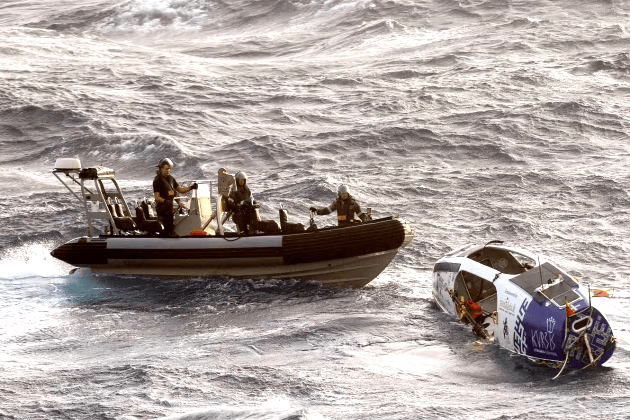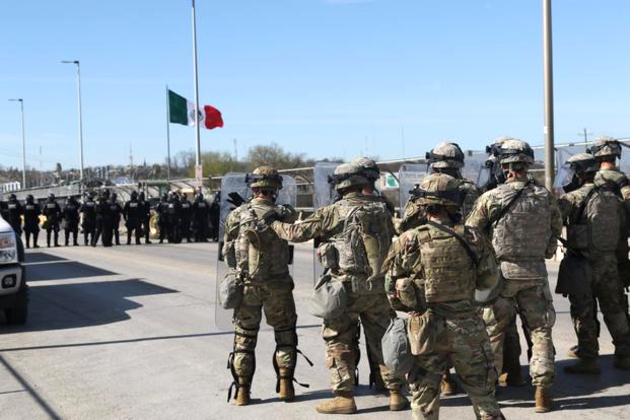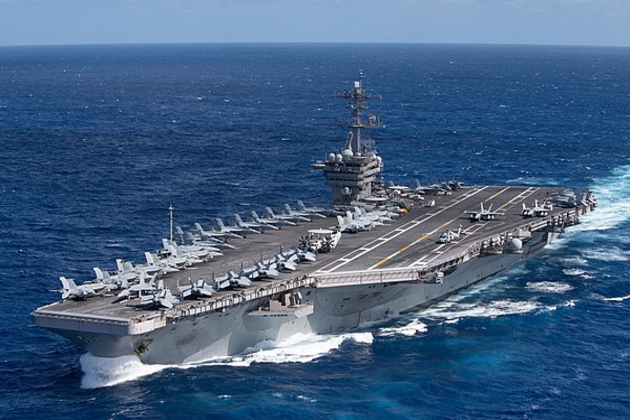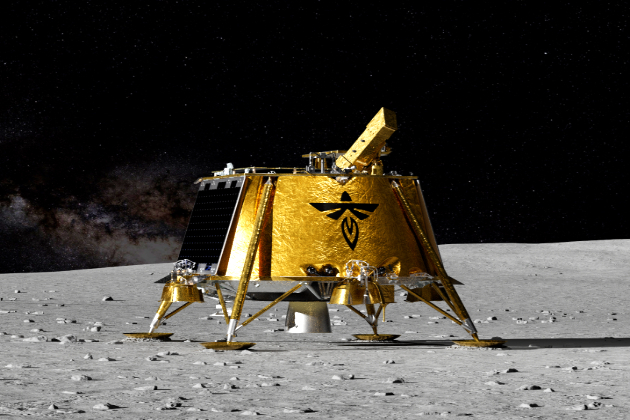What India needs to rise as a great power
RT.com
07 Mar 2025, 20:09 GMT+10
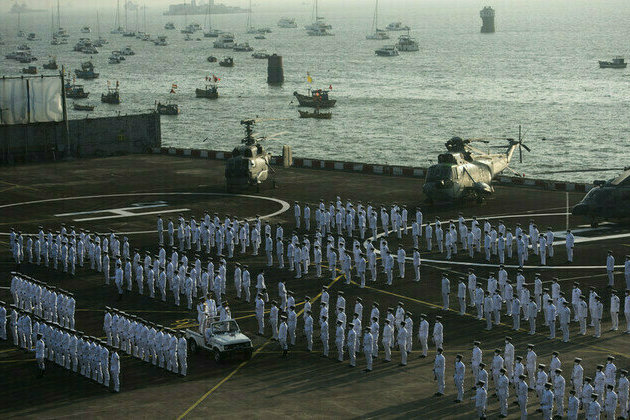
New Delhis quest for great status lies in building a blue water navy, but it has been loathe to pursue this path
Every state's politics is dictated by its geography - hence the term geopolitics. India is no exception. The Himalayas to the North running eastwards, and the Indian Ocean flanking the southern shores provide natural barriers to the unique subcontinentalecosystem. Historically, almost all the invasions India has been subjected to were undertaken through the northwestern plains, which provides the only viable land route for large standing armies.
However, these barriers also isolate the subcontinent from the rest of the Eurasian landmass, preventing an outward expansionism from within. The oft-repeatedphraseamong Indians - 'India has never invaded another country in the last 10,000 years' - isn't a question of intent but of geopolitics.
With the north cut off due to geographical impossibilities, seafaring was, and remains, the most viable form of expanding influence. Indeed, during the era of the South Indian Chola empire, its seafaring capabilities allowed it to establish far-reaching influence up till Java, Sumatra (present day Indonesia), and Indo-hina. Hindu and Buddhist temples scattered across South East Asia are a testament of that seafaring past.
It also meant that during times of internal crisis and strife, seafaring routes could be exploited by external powers to expand into the subcontinent. The establishment, expansion, and conquest of the subcontinent by the British East India Company is a case in point.
Colonial legacy
Scrappingthe plans for a third aircraft carrier shows that India has axed its visions of a great power, even if it doesn't immediately realize it.
A 75-year independent history and preceding global events are sufficient to realize that India's path to greatness doesn't run through its neighbourhood, but through the Indian Ocean. America's tumultuous ties with Latin America, and the USSR's conflictual relations with China and Yugoslavia did not prevent them from successfully projecting power globally. Having restive neighbours due to unequal power relationships is the characteristic nature of a great power. Treating it as the norm rather than an exception will colossally benefit the Indian leadership in the long run.
India became independent in 1947 - a time when an economically bankrupt Britain handed over the command of the global commons to the US even as the Cold War started materializing. Colonial India was the Jewel of the British Empire; but after independence, how could the Anglo-Saxons retain control over a valuable state strategically located near the global commercial sea lanes?
The Americans pursued a two-pronged strategy: First, by building a military base on the British-loaned Chagos Archipelago, and second, bypreventinga large Indian naval presence by arming and aiding Pakistan, Delhi's neighbouring rival. The nascent Indian leadership was forced to divert funds for the construction and maintenance of a large standing land army to protect itself against threats in the north - China and Pakistan.
Long-term priorities
As India strives for a status of not just regional, but global power, which includes ambitions for a modern and efficient military, it needs to first prioritize naval development and modernization; second, develop a sustainable indigenous defense industrial capacity, and third, engage in bilateral relations which bolster instead of degrading Indian interests in the long term.
These are easier said than done. However, materializing them is critical if Indian great power status is to become a reality.
Today the Indian Navy's posture is defensive in nature, with limited offensive strike capabilities. Indian naval chiefs have consistentlyadvocatedin the past for a three-carrier naval force, which is at odds with the government's and the army's traditional land-dominated thinking.
Despite the example of the US, whose carriers have served as a force multiplier and instruments of power projection, former Chief of Defense Staff General Bipin Rawat has dismissed them as "sitting ducks."
There are three points to consider. Firstly, a state doesn't transform into a great power by solely 'defending' its backyard against foreign interventions, but instead by proactively investing in infrastructure (read: carriers) which effectively extends its influence and operational reach beyond home waters.
Secondly, the Indian state is current failing even in its own prioritized sectors. Thedismalproduction rate of submarines, which are one of the pivotal anchors of Anti-Access/Area Denial (A2/AD) doctrine, highlights the lack of effective naval architecture to materialize Indian ambitions.
Third, closely resembling the Cold War scenario, the ouster of a pro-Indian government in Dhaka has successfully caged Indian ambitions through an unstable,volatilepro-American Bangladesh. Therefore, similar to pre-independence era, the costly maintenance of a large land force, the staunch intellectual inertia against pivoting away from outdated concepts and foreign interference keeps the Indian state boxed within the subcontinent.
Defense strategy
Throughout the past two decades, despite a growing body of literature labeling India as an 'emerging great power', the country has been unable to cross the Rubicon from emerging to actually being a great power.
One of the primary criteria for a greater power is the presence of an autarkic defense-industrial base. Establishing one is itself a formidable yet delicate task. India needs to ask whether greater American defense reliance, which comes with multiple strings attached and denies technology transfer, will help India on its path towards becoming a great power.
In other words, are defense ties with Washington reducing New Delhi to a long-term buyer, or can the relationship transform into a joint partnership, akin to what it enjoys with Russia, which also allows transfer of technology?
For India, the criticality to develop an effective indigenous defense industry gains newfound urgency due to growing concerns about Russian-Chinese bonhomie. Unsettled about the guarantee of Russian defense imports amid a potential future Indian-Chinese conflict, New Delhi should not overlook a far graver outcome - a possible American-Chinese rapprochement.
This situation wouldfundamentallyupend current Indian dynamics which rely on India showcasing itself as a potential ally against China, while retaining sufficient autonomy to pursue its own independent interests, which may not necessarily overlap with American interests. New Delhi has certainly been making clear attempts to curry favor with the Trump administration: It agreed to take back illegal immigrants, being rather silent on their objectionable treatment, andreducedtariffs on American imports in the budget adopted for the next fiscal year. The Indian prime minister's visit to the US to iron out potential differences was also a part of the effort.
To understand the 'why' requires a dive into India's past. A cursory historical glance will reveal that Indian foreign policy operates optimally in an unstable international environment marked by competition among multiple states. By deftly fine-tuning bilateral relations to its own advantage while never overtly antagonizing its relations with other states, has been a difficult but rewarding cornerstone of Indian diplomacy.
Conversely, in an international order where the great powers aren't engaged in a power struggle complicates Indian balancing. With no rivalry left to exploit, India risks falling into irrelevance on the global stage - being perennially relegated to being a middle power at best. This time, despite the international situation beckoning greater proactive indigenous defense development, New Delhi is determined to stay within the trench it has dug for itself.
India has developed a habit of engaging in strong talk, both domestically and on the global stage, yet often overlooks the importance of backing this talk with action. Soft power can be effective when supported by hard power. Likewise, while assertive discourse has its place in international relations, its strength is directly tied to a nation's military capabilities. If India curtails its naval expansion and settles for the status quo, it risks leaving room for other powers to fill the void, which they will inevitably do.
India's elites must realize that the country's road to greatness passes through the Indian Ocean, and not through its restive neighbourhood. Without such fundamental geostrategic restructuring, India risks stagnating as a middle power - relegated to launching fanciful satellites to placate its great power ego while its backyard is overrun by rivals. As Alfred Mahan declared in his seminal treatise "France fought for the empire of the land, and England for the empire of the sea; and it was the empire of the sea that ultimately decided the fate of the world."
(RT.com)
 Share
Share
 Tweet
Tweet
 Share
Share
 Flip
Flip
 Email
Email
Watch latest videos
Subscribe and Follow
Get a daily dose of Central Asia Times news through our daily email, its complimentary and keeps you fully up to date with world and business news as well.
News RELEASES
Publish news of your business, community or sports group, personnel appointments, major event and more by submitting a news release to Central Asia Times.
More InformationInternational
SectionPentagon requires weekly accomplishment reports after Musk’s demand
WASHINGTON, D.C.: The Pentagon told its civilian employees that they must provide a list of five bullet points detailing their accomplishments...
Australian warship rescues Lithuanian adventurer in Coral Sea
MELBOURNE, Australia: An Australian warship rescued Lithuanian adventurer Aurimas Mockus this week after he became stranded in the...
3,000 more active-duty troops sent to US-Mexico border
WASHINGTON, D.C.: The U.S. is sending about 3,000 more soldiers to the U.S.-Mexico border as President Donald Trump pushes to stop...
Members allowed to switch as Medicaid provider loses accreditation
ANNAPOLIS, Maryland: Maryland's largest managed care organization for Medicaid recipients has had its accreditation suspended, prompting...
US aircraft carrier in South Korea after North Korea's missile tests
SEOUL, South Korea: A U.S. aircraft carrier reached South Korea over the weekend, shortly after North Korea test-fired cruise missiles...
Marking a first, Firefly Aerospace's Blue Ghost lands on the moon
WASHINGTON, D.C.: Firefly Aerospace has achieved a major milestone in private space exploration, successfully landing its Blue Ghost...
Asia
SectionUS aircraft carrier in South Korea after North Korea's missile tests
SEOUL, South Korea: A U.S. aircraft carrier reached South Korea over the weekend, shortly after North Korea test-fired cruise missiles...
Japan’s birth rate hits record low amid aging population
TOKYO, Japan: The number of babies born in Japan fell to a record low of 720,988 in 2024 for a ninth consecutive year, the health ministry...
Rare boost for South Korea as births rise after nearly a decade
SEOUL, South Korea: For the first time in nine years, South Korea recorded a rise in births, offering a rare positive sign in the country's...
North Korean-backed hackers steal $1.5 billion from Dubai crypto firm
ROME, Italy: U.S. authorities have accused North Korean-backed hackers of stealing US$1.5 billion in cryptocurrency from Dubai-based...
What India needs to rise as a great power
New Delhis quest for great status lies in building a blue water navy, but it has been loathe to pursue this path Every state's politics...
ICC Player of the Month nominees announced: Shubman Gill, Glenn Phillips, Steve Smith shortlisted for Feb 2025 award
New Delhi [India], March 7 (ANI): Australian batting icon Steve Smith, Indian opener Shubman Gill and New Zealand all-rounder Glenn...


